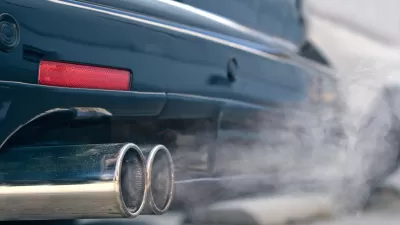With not a moment to spare, the Senate passed the House-approved version of the Clunkers program extension - an additional $2 billion to last to Labor Day, and then went into recess. Any changes would have ended the program.
The initial $1 billion allocation lasted a mere 10 days, beginning on July 27 after the Dept. of Transportation set up the computer programs, though it had hoped to keep the program running till Nov.1. The vote was largely along party lines, 60-37, with Democrats in support - and Republicans, save seven, largely saying 'no'.
"The additional money is borrowed from another stimulus program, a loan program for green energy projects. But lawmakers want to replenish that, so the cash-for-clunkers extension spending will probably add to the federal deficit.
Dealers say they have made about a quarter-million new car sales incorporating the rebate. The program caught public attention in a way that the Senate's other recent concerns like health care legislation have not."
From NYT Editorial: "Congress was right to add $2 billion to extend the program until Labor Day. But the success of the program cannot obscure the fact that many Americans remain wedded to the guzzlers and that their enthusiasm for smaller, more efficient vehicles is likely to diminish once the clunkers money runs out."
From Sierra Club press room: "Car Consumers Get It":
"After today's successful Senate vote extending the federal government's Car Allowance Rebate System (also known as "cash for clunkers"), the Sierra Club announced it will continue helping consumers better understand the environmental and economic benefits of making the right vehicle purchasing decisions.
The Club's Cash for Clunkers online guide includes a calculator allowing consumers to compare the fuel savings and emissions reduction benefits of various new models."
Thanks to Loren Spiekerman
FULL STORY: Senate Adds Cash to ‘Clunkers’ Plan

Maui's Vacation Rental Debate Turns Ugly
Verbal attacks, misinformation campaigns and fistfights plague a high-stakes debate to convert thousands of vacation rentals into long-term housing.

Planetizen Federal Action Tracker
A weekly monitor of how Trump’s orders and actions are impacting planners and planning in America.

San Francisco Suspends Traffic Calming Amidst Record Deaths
Citing “a challenging fiscal landscape,” the city will cease the program on the heels of 42 traffic deaths, including 24 pedestrians.

Adaptive Reuse Will Create Housing in a Suburban Texas Strip Mall
A developer is reimagining a strip mall property as a mixed-use complex with housing and retail.

Study: Anti-Homelessness Laws Don’t Work
Research shows that punitive measures that criminalized unhoused people don’t help reduce homelessness.

In U.S., Urban Gondolas Face Uphill Battle
Cities in Latin America and Europe have embraced aerial transitways — AKA gondolas — as sustainable, convenient urban transport, especially in tricky geographies. American cities have yet to catch up.
Urban Design for Planners 1: Software Tools
This six-course series explores essential urban design concepts using open source software and equips planners with the tools they need to participate fully in the urban design process.
Planning for Universal Design
Learn the tools for implementing Universal Design in planning regulations.
Heyer Gruel & Associates PA
JM Goldson LLC
Custer County Colorado
City of Camden Redevelopment Agency
City of Astoria
Transportation Research & Education Center (TREC) at Portland State University
Jefferson Parish Government
Camden Redevelopment Agency
City of Claremont



























